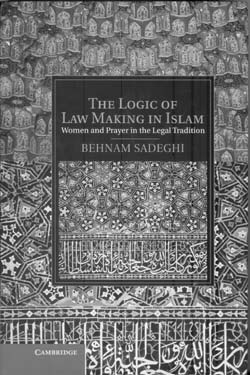In many general and not particularly well- informed opinions on Islam there is an instinctive tendency to view it as hopelessly out of date and fossilized. Such opinions are often the product of hastily formulated media reportage. It is here that scholarship of the kind contained in Behnam Sadeghi’s book the Logic of Law Making in Islam: Women and Prayer in the Legal Tradition becomes vitally important. Sadeghi in his attempt to understand the question of women’s participation in prayer, while confining himself to the Hanafi legal tradition, has analysed the legal opinions of around 30 scholars across a thousand years from the 8th to the 18th century. These scholars range from the founder of the Hanafi tradition Ibrahim al-Nakhai who was born in Kufa in present-day Iraq and died in 715 AD, to more recent subcontinental scholars such as the authors of the al-Fatawa al-Alamgiriya, a compendium of legal opinion compiled during the reign of Aurangzeb between 1664 and 1672 and the theorist al-Laknawi who died in 1887.

How Laws Are Interpreted
Amir Ali
THE LOGIC OF LAW MAKING IN ISLAM: WOMEN AND PRAYER IN THE LEGAL TRADITION by Behnam Sadeghi Cambridge University Press, New Delhi, 2014, 215 pp., Price not stated
March 2014, volume 38, No 3
